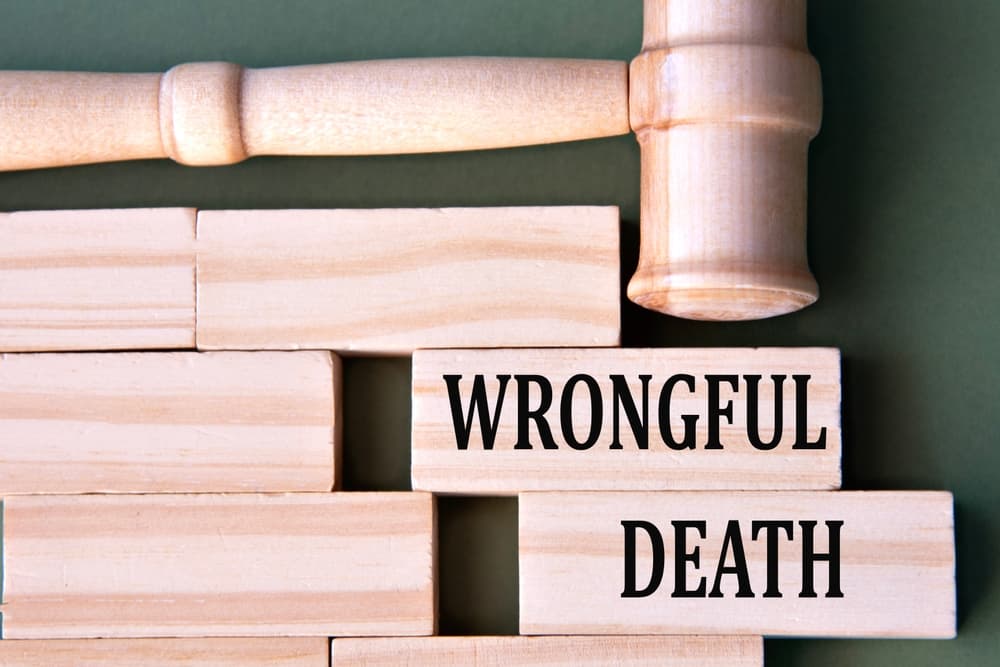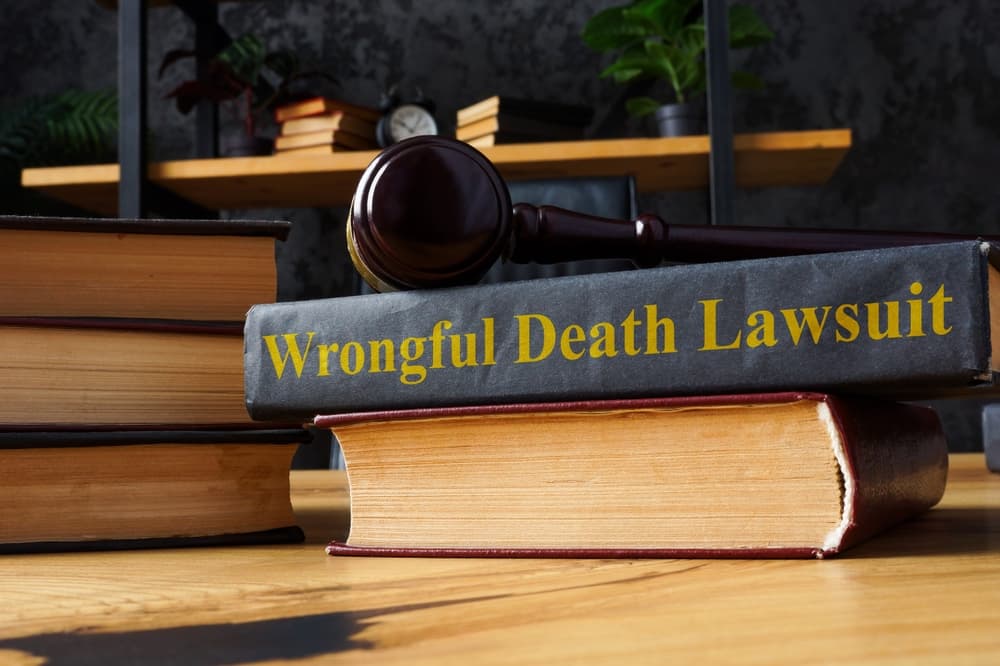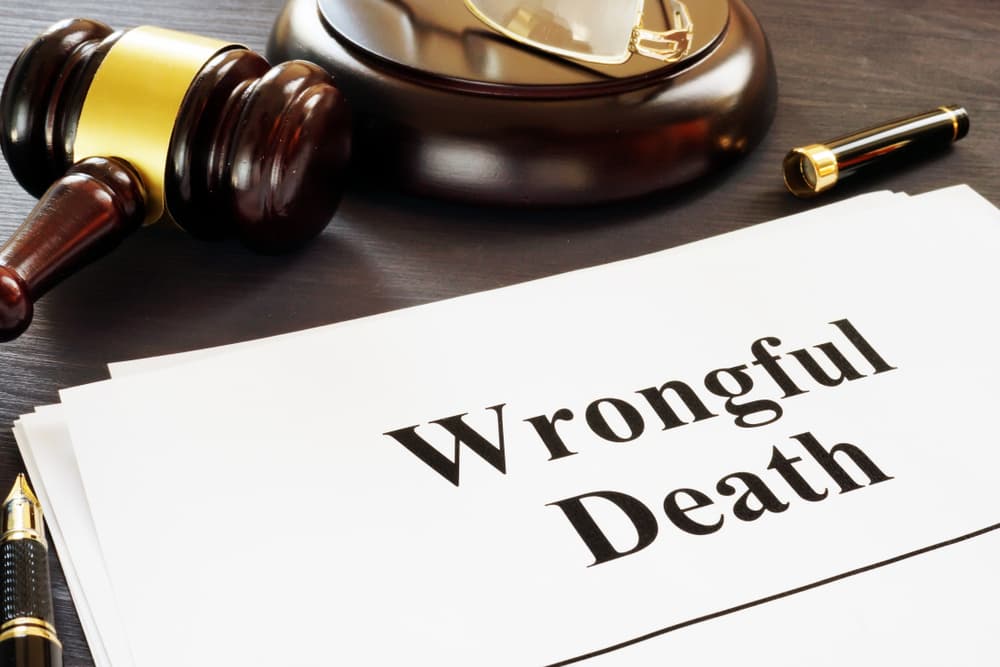
Losing a loved one is always devastating, but it can be even more difficult to process when someone else's negligence or wrongdoing causes their death. When a tragic loss is preventable, it leaves families wanting a greater sense of justice for the untimely passing of their loved one. This is where the concept of wrongful death comes into play.
If you have recently experienced the loss of a close family member, you should understand the basics of what wrongful death entails and how it may affect you and your family moving forward. Hiring a compassionate and experienced wrongful death attorney is the best way to accomplish this. They can evaluate what happened and advise you whether you have a possible claim for compensation.
Wrongful Death Definition
Wrongful death refers to a legal claim for damages that occurs when a person dies due to the negligence or wrongful act of another individual, entity, or organization. It asserts that the deceased person's death was caused by someone else's wrongful actions or failure to act. As a result, their surviving family members or beneficiaries are entitled to seek compensation for the loss they have suffered. Essentially, if the decedent could have filed a personal injury claim if they had survived their injuries, specific parties can file a wrongful death claim on their behalf after their death.
Wrongful death cases can arise from various situations, such as car accidents, falls, workplace accidents, or even criminal acts. If you have lost a loved one due to wrongful death, it is important to understand your rights and seek justice.
Elements of a Wrongful Death Claim
When pursuing a wrongful death claim, claimants must establish four key elements of liability:
- Duty of Care: The responsible party must have owed a duty of care to the deceased person. For example, a driver has a duty of care to follow traffic laws and drive safely.
- Breach of Duty: It must be proven that the responsible party breached their duty of care. This can involve negligence, recklessness, or intentional misconduct.
- Causation: The breach of duty must be directly linked to the person's death. In other words, it must be shown that the wrongful actions of the responsible party caused the death.
- Damages: The death must have caused damages such as loss of financial support, emotional distress, medical expenses, funeral expenses, and other related losses.
These elements form the foundation of a wrongful death claim, and each must be proven to have a successful case. Stating someone else was responsible is not enough, as your attorney must provide evidence to support each element of the claim.
Causes of Wrongful Death Claims

Wrongful death claims can arise from a wide range of situations. Common causes of wrongful death include:
- Car Accidents: Negligent and reckless driving can result in fatal accidents, leading to wrongful death claims.
- Truck Accidents: When commercial drivers are negligent behind the wheels of semi-trucks, fatal crashes are more common.
- Workplace Accidents: If your loved one died due to unsafe working conditions or employer negligence, you may have a valid wrongful death claim.
- Product Liability: Defective products that cause fatal injuries may lead to wrongful death claims against manufacturers or distributors.
- Criminal Acts: Homicides or assaults resulting in death can give rise to both criminal charges and wrongful death claims.
If your loved one died due to one of these circumstances, be sure to consult with a wrongful death lawyer who can evaluate the specific circumstances of your case and explain the next steps.
Who Can File a Wrongful Death Case?
In wrongful death cases, the right to file a claim belongs to the deceased person's immediate family members or their representative. The specific individuals who can file a wrongful death case vary by jurisdiction but typically include:
- Spouses: The surviving spouse of the deceased has the right to file a wrongful death claim.
- Children: If the deceased person had children, they may have the right to pursue a wrongful death claim.
- Parents: In some cases, parents of the deceased can file a wrongful death claim, especially in situations where the deceased was a minor.
- Other Dependents: Individuals who were financially dependent on the deceased person may also have the right to file a wrongful death claim.
To determine if you can file a claim and understand the specific laws in your jurisdiction, consult a local wrongful death lawyer.
Damages Arising From Wrongful Death Claims
A successful wrongful death claim can provide compensation for various damages that have resulted from the untimely death of your loved one. These damages may include:
- Economic Damages: Compensation for financial losses such as medical expenses, funeral costs, loss of income, loss of future earnings, and loss of benefits.
- Non-Economic Damages: Compensation for intangible losses such as pain and suffering, emotional distress, loss of companionship, and loss of guidance and support.
- Punitive Damages: In cases where the responsible party's actions were particularly egregious, punitive damages may be available. These damages aim to punish the wrongdoer and deter similar behavior. However, only cases that go to trial can receive these types of damages. This is because only a judge or jury can award them. If your case settles out of court, you won't receive them, but you can still receive compensation for economic and non-economic damages.
The specific damages available in each case vary, and a wrongful death lawyer can help determine the appropriate damages to pursue based on the unique circumstances of your situation.
What is a Wrongful Death Case Worth?

Determining the value of a wrongful death case is a detailed process that involves various factors. The potential settlement or award amount may depend on factors such as:
- Economic Losses: The financial impact of the death, including medical expenses, funeral costs, lost income, and future earnings.
- Non-Economic Losses: The emotional and psychological impact of losing a loved one, including pain and suffering, loss of companionship, and loss of support.
- Insurance Coverage: The insurance policies held by the responsible party may cover some or all of the damages.
- Strength of Evidence: The strength of the evidence supporting your claim, including witness testimonies, expert opinions, and documented damages.
Be sure to work with a skilled wrongful death lawyer who can assess the specific details of your case and provide an accurate estimate of its potential value.
What if there is a Criminal Case?
In cases where the death was a result of criminal activity, there may be both a criminal case and a wrongful death case. It's important to understand that these are separate legal processes with different outcomes and objectives.
The government initiates a criminal case to punish the wrongdoer and maintain public safety. The burden of proof in a criminal case is "beyond a reasonable doubt," meaning the evidence must prove the defendant's guilt to a high degree of certainty.
On the other hand, a wrongful death case is a civil lawsuit filed by the victim's family seeking compensation for their losses. The burden of proof in a civil case is lower than in a criminal case and is based on the preponderance of evidence, meaning that the evidence must tip the scales slightly in favor of the plaintiff.
While the outcome of a criminal case can impact a wrongful death case, the two proceedings are independent of each other. A skilled wrongful death lawyer will manage the ins and outs of your civil case and advocate for your rights.
The Statute of Limitations for Wrongful Death Cases

When filing a wrongful death lawsuit, time is of the essence. The statute of limitations sets the time limit n which a lawsuit can be filed. This varies from state to state, so it is important to consult with a qualified attorney who is familiar with the laws in your jurisdiction.
The statute of limitations for wrongful death cases is typically shorter than for other civil lawsuits. This is because the evidence needed to prove a wrongful death claim is often best preserved soon after the incident. Waiting too long to file a lawsuit can result in losing crucial evidence and witnesses, making it more challenging to build a strong case.
How Long Does a Wrongful Death Case Take?
The length of a wrongful death case can vary significantly depending on several factors. Each case is unique, and there is no one-size-fits-all timeline. However, each case follows the general stages and potential timeframes involved in a wrongful death lawsuit.
Investigation and Consultation
The first step in any wrongful death case is to consult an attorney. During the initial consultation, the attorney will gather information about the circumstances surrounding the death, evidence, and potential witnesses. They will also evaluate the merits of the case and provide advice on how to proceed.
Filing the Lawsuit
Once the attorney has conducted a thorough investigation and determined there is a valid claim, they will file a lawsuit on behalf of the surviving family members. This involves drafting legal documents, gathering evidence, and submitting the lawsuit to the appropriate court.
Discovery
During the discovery phase, both parties exchange information and evidence related to the case. This can include written interrogatories, document requests, depositions, and expert witness testimony. Discovery allows each side to gather evidence to support their claims and defenses.
Negotiation and Settlement
After the discovery phase, the attorneys for both parties may engage in settlement negotiations. This is an opportunity to resolve the case without going to trial. The length of the negotiation process can vary depending on the willingness of the parties to compromise and the specifics of the case.
Trial
If a settlement cannot be reached, the case will proceed to trial. The length of the trial can vary depending on the complexity of the case, the number of witnesses, and other factors. During the trial, the attorneys present their arguments and evidence to a judge or jury, who will ultimately decide the outcome of the case. Remember that the case can still settle while a trial is pending, or even after a trial has begun.
Appeals
If either party is dissatisfied with the outcome of the trial, they may choose to file an appeal. The appeals process can add additional time to the overall length of the case. You will want to consult with a lawyer who is experienced in handling appeals if you choose to pursue this option.
Why You Need a Wrongful Death Lawyer on Your Side

Losing a loved one due to wrongful death is an overwhelming and emotionally challenging experience. Dealing with legal matters on top of grieving can be tremendously burdensome. Having a knowledgeable and compassionate wrongful death lawyer on your side is beneficial in many ways, including the following:
- Legal Experience: Wrongful death cases involve complex legal procedures, statutes of limitations, and deadlines. A wrongful death lawyer has the knowledge and experience to protect your rights.
- Investigation: A skilled lawyer can conduct a thorough investigation to gather evidence, interview witnesses, and reconstruct the events leading to your loved one's death. This investigation is necessary to build a strong case.
- Negotiation and Settlement: A wrongful death attorney can skillfully negotiate with insurance companies and opposing parties on your behalf to secure a fair settlement. They understand the tactics insurers may use to minimize or deny your claim and will work to protect your best interests.
- Trial Representation: If necessary, a wrongful death lawyer will prepare your case for trial and zealously represent your interests in court. Their skills in presenting evidence and arguing your case can significantly impact the outcome.
Let a Well-Versed Wrongful Death Attorney Handle Your Case
If you believe someone else's negligence or misconduct caused your loved one's death, don't wait to consult with a personal injury attorney at Fields Injury Law. These experienced legal professionals are dedicated to helping victims and their families seek the justice and compensation they deserve. They will manage your claim and be with you every step of the way. Schedule a no-obligation consultation and let them handle your wrongful death case with care, compassion, and skill. The sooner you get your claim started, the sooner you can receive compensation for your damages.

